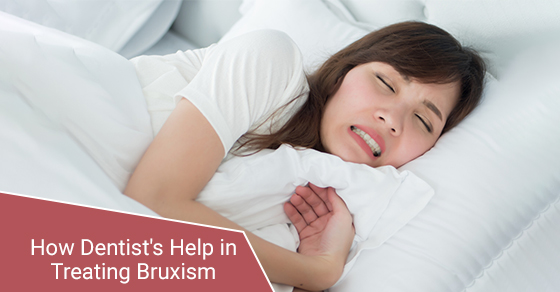
Bruxism is the medical term for teeth grinding, and can also include gnashing or clenching your teeth. Although bruxism is common, there are many different reasons you or your child might be grinding. This might seem like a harmless “habit”, however, bruxism can lead to serious damage, tooth pain and even headaches.
Understanding Bruxism
Bruxism is a medical condition in which grinding tends to take place at night and clenching is more common during the day. Despite day clenching, bruxism is considered to be a sleep-related disorder which is often associated with other sleep disorders such as sleep apnea and snoring.
Milder forms of bruxism cause fewer issues and therefore you might not need treatment. However, when it becomes more severe you can have many issues from jaw pain to damaged teeth and headaches. One of the main challenges with bruxism is that it occurs at night so many people do not even realize they have the condition. As well, although there are many symptoms of bruxism, most people do not relate them to their teeth grinding.
Symptoms of Bruxism
The most common symptoms of bruxism include:
What Causes Bruxism
Although causes are not necessarily clear, there are a number of factors that can lead to bruxism such as genetics, and physical and psychological reasons. Bruxism during the day is often caused by emotional factors brought on by stress, frustration, tension, anger and anxiety. Often people don’t even realize they are doing it as it is an unconscious attempt to ease tension or in some cases can even help someone to concentrate.
There are some risk factors at play as well including:
Complications of Severe Bruxism
If you tend to have a more serious form of bruxism you can suffer from complications that include damage to your teeth and jaw, severe headaches and pain in your teeth, face and jaw. In fact, one of the most common complications is temporomandibular joint syndrome (TMJs) which can include difficulty chewing, opening your mouth and clicking sounds when chewing. TMJ can also cause mild to severe pain in the jaw, face, ear and head.
Speaking to your Dentist
Whether you, your partner or child have symptoms of bruxism it is always a good idea to book an appointment to see your dentist. The sooner you can speak to them about your symptoms, the better as they will be able to recommend treatment while also helping you to avoid more serious side effects from bruxism.
Treating Bruxism
When you speak to your dentist, they will have a number of suggestions to help you avoid damage to your teeth and jaw including:
Bruxism due to Dental Problems
When you speak to your dentist about bruxism they might also identify dental problems that could be causing your issues. These issues can include missing teeth or poor bite. With an examination, they will be able to identify issues and provide treatment that will help you with your bruxism. They will also look at the damage caused by your bruxism and recommend restorative treatments that can help correct damage. This can also help with the appearance of your teeth depending on where the damage has occurred.
If you or a family member has bruxism, call our office today at (905) 842-6030 or contact us here.
 0 Comment
0 Comment